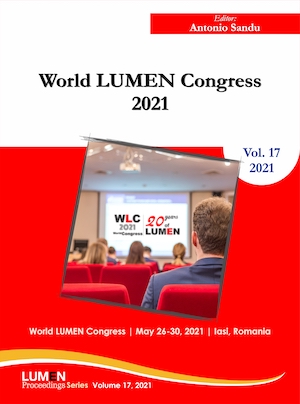Particularities of Electrophysiological and Psychoneurological Assessment of Mild Traumatic Brain Injury
Particularities of Electrophysiological and Psychoneurological Assessment of Mild Traumatic Brain Injury
Author(s): Gabriela Mariana Marcu
Subject(s): Social Sciences, Psychology, Sociology, Neuropsychology, Health and medicine and law
Published by: Editura Lumen, Asociatia Lumen
Keywords: Mild traumatic brain injury;psychoneurological assessment;electrophysiological assessment;QEEG;post concussive syndrome;
Summary/Abstract: Neuropsychological functioning after mTBI is individualized and dynamic, with no currently known predictors and usually having a trajectory of gradual improvement. It is still a challenge to identify specific cognitive profiles associated with mTBI. One of the causes is the transient character of TBI symptoms as they are not appearing immediately after the injury. Another explanation resides in the individual and group variability of cognitive impairements following mTBI, which also affects the standardisation of the neuropsychological tests to use in mTBI assessment batteries (Iverson et al., 2013; Prince & Bruhns, 2017; Tulsky et al., 2017). Presently concussion has no accepted definition or diagnostic criteria. Also, there is no standard (or gold standard) for screening or properly identifying and diagnosing all population with concussion. (Borg et al., 2004).Patients with mTBI could evolve in a bunch of physical, cognitive, and emotional symptoms (Permenter et al., 2021) that are usually known as post-concussion syndrome (PCS). In terms of symptoms, we target neuropsychological evaluation of four key domains (“higher-order attention”, “executive function”, “episodic memory”, and “speed of information processing”) implicated in chronic impairment after mTBI. Alternatively, studies on the EEG frequency domain shed new light on the possibility to have a diagnostic marker based on QEEG patterns identified in the mTBI population and some prognostic factors for the PCS syndrome.(Rapp et al., 2015; Thornton & Carmody, 2009).Given the particularities of neuropsychological functioning after mTBI we emphasize the need of a mixed methodology, using both electrophysiological and psychoneurological tools, to provide the best sensitivity and specificity in assessing cognitive and functional deficits and in predicting further PCS.
Book: World Lumen Congress 2021
- Page Range: 387-395
- Page Count: 9
- Publication Year: 2022
- Language: English
- Content File-PDF

